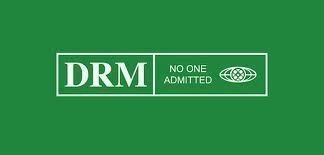Digital Rights Management
Digital Rights Management (DRM) refers to a system of access control techniques that digital systems manufacturers implemented. DRM allows companies to protect their assets from being copied or otherwise unlawfully distributed by either analog or digital means, with more emphasis on the latter. DRM can be used in any digital system and can function in a variety of ways to restrict users from simply copying a digital file or accessing a digital system altogether.
How Digital Rights Management Works
There are many different types of DRM, but most fall under the category of E-DRM, watermarks, or metadata. Systems creators, such as Microsoft or Adobe, use E-DRM (Enterprise Digital Rights Management) to restrict access to specific software unless the user provides a valid key. While E-DRM does not prevent users from obtaining files that are compatible with that software, the user will not be able to access those files via traditional means without a valid key. In contrast, watermarks are embedded into actual media files and keep track of copyright information and the distribution chain the media file has taken. While watermarks do not prevent users from accessing media files, they do provide copyright agencies with criminal evidence for prosecuting users who have obtained those files illegally. Similarly, metadata can be included in a media file in order to keep track of user account information and may restrict access to the file if the user has not obtained the file through legitimate sources. 
Applications
Media production companies often use Digital Rights Management to restrict users from copying or distributing copyrighted materials such as music or movies. Electronics companies that distribute physical systems (such as DVRs from digital television companies that restrict users from accessing channel packages that they did not pay for) to their subscribers also use DRM. DRM may also be included in system specific media files such as files purchased from Apple’s iTunes Store.
Criticism of Digital Rights Management
Over the past few decades, many individuals and organizations have strongly criticized Digital Rights Management use. These individuals and organizations believe that Digital Rights Management limits innovation and stifles competition for large companies. DRM has also been criticized for allowing only a specific machine to be able to read media files, preventing future electronic devices from recovering previously saved data.


Comments - No Responses to “Digital Rights Management”
Sorry but comments are closed at this time.